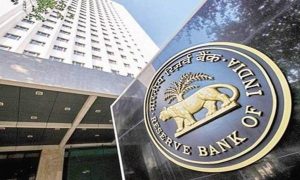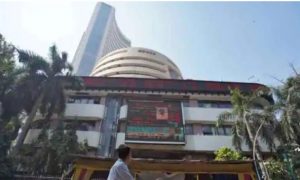A migrant worker in south Delhi’s Sangam Vihar, marked a COVID-19 hotspot by authorities, is preparing hummus and French fries for his daughter. But he doesn’t know if he will have enough money to buy things to keep the girl happy in this neighbourhood where the deadly novel coronavirus has been more active than in many other parts.
Across the country, administrations have declared some areas as pandemic hotspots – people here, barring rare exceptions, are physically cut-off from the outside world. For the poor migrant workers who stayed back, money is causing all the anxiety, while for the residents of high-rise apartments, in Noida for instance, the primary fear is of being infected and losing what they have – “life and family”.
There are some who are reminded of the 2002 Gujarat riots when everything was sealed, while others wonder what is it like in Kashmir. News18 speaks to people in hotspots and containment zones to know what has changed. How much, for instance, has COVID-19 complicated matters for a chronically ill young girl suffering from 22 different ailments?
“There will be no income for the next one week”
I run a small kirana store in the area and earn Rs 15,000 every month. This decision came yesterday that the area will be sealed. I thought the shop will be allowed to be open since it falls under essential services category. However, police officials came last night and said that everything will be shut. This means that there will be no earnings for the next one week. There are six people in my house. Stepping out of the house is also not allowed. My father is old and usually prefers going for a stroll in the evenings. Keeping him inside was anyway proving to be difficult for so long, now they have made it even more strict. Also, the area where we live, I am not sure whether home delivery of essentials will be possible. Let’s hope this subsides really quickly. (Rakesh Kumar , Noida’s Chaura village)
“We are earning nothing but spending more”
Everything is functional but that doesn’t mean things are normal – we earn nothing and spend more. The shops are open but it’s not the same anymore. Earlier, I would go and get things, but now I go and get my number at the lakshman rekha. Sometimes it takes hours to get through to the shop and buy articles – two-three hours, on occasions. The last time, I stood for two days for my turn to buy flour – it costs Rs 32 per kilo, earlier it was Rs 25. Similarly, oil was Rs 95 and now it is Rs 110. I am spending more and getting no payment for my work as a karigar in a boutique – I earn Rs 14,000, but since there is no work I am running short of money. I don’t know if my employer will give us money because I have to pay the rent of Rs 3,000. My friends reached Etawah walking. I could have joined them but with kids it’s not possible. It took them almost a week to reach there. Apart from this, we stay locked in the room. My wife has diabetes so I have to take care of her. My daughter is 11 years old and expects me to cook fancy things… so these days I am making hummus and French fries for her. (Govind Kumar, Sangam Vihar)
“There is a fear of being infected”
There is a constant fear of being infected. We are literally living at a stone’s throw from the tower where a positive case has been found. There were police vans inside the compound last night that announced nobody should step out of their houses, else serious action will be taken. The society gates are locked, and we cannot move out, neither can anybody step in unless for essential services. There is heavy presence of security at the gates. All of us are very happy with the measures but personally it does cause mental trauma. My five-year-old daughter constantly wishes to go out and play with her friends. She is too young to understand the gravity of the matter.
Till now essentials have not been a problem, but after the news came yesterday I rushed to the nearest grocery store to buy enough. I just hope we are able to make it through even after being physically so close to the virus. (Rajveer Singh, Jaypee Towers, Noida Sector 128)
“Memories of Gujarat riots”
This lockdown has brought back memories of the Gujarat riots. I’ve grown up in Vadodara. In 2002, for days after the riots, we could not step out. There used to be security personnel outside houses. Everything was shut and even essential services became difficult to get. Similar is the case now. The problem is worse this time, as we are protecting ourselves against something that is invisible. We don’t know who is infected and unconsciously may be a carrier. There is fear among every resident now. We just want this to pass as soon as possible. The sheer freedom of being wherever you want to be seems so precious right now. (Sakshi Malik, Ace Golfshire Society, Noida Sector 150)
“I am chronically ill, but COVID-19 has made things tougher”
I live in a containment zone, which is just five minutes away from a spot where a positive case was found. The administration has created a 3 km radius to make our areas in Andheri East a containment, but life has got tougher and more precautions have to be taken than in the past. I am chronically ill and I have been at home for a lot longer than many others, so it’s not two and a half weeks of isolation for me. In May last year, I was bed-ridden So even when COVID started I had been quarantined. I have 22 different chronic illnesses. I stay at home because I am compromised and cannot be treated because the medicines being used for COVID-19 might kill me. I just can’t get infected. I am used to isolation but now I am not allowed to step out of the door and no one else is allowed to come in.
My mother is also maintaining distance from me. We now we eat in different rooms, can’t sleep together, she will not come very close or touch my blanket, towel, etc. She goes to buy things and makes sure everything she gets is sanitised. Precautions have gone up manifold and that also means physical contact has become bare minimum with her unless urgent – like if I faint and she has to lift me up. She checks in. I have a bell to ring and contact her in an emergency. (Karishma Khemlani, containment zone, Andheri East)
“What would it be like in Kashmir?”
Life has been tough. We weren’t taken aback by the decision, but we did panic, especially because we have a two-year-old kid to take care of. Since I was busy working from home, I couldn’t help my family much, but my husband and father were the first to rush to nearby shops to buy essential goods. Long queues meant an hour-long wait at stores. My heart goes out to everyone who experienced this before, by which I mean people in Kashmir and other such areas. This lockdown and sealing is very new to my family. Haven’t seen anything like this ever. (Sonia Arora, Ghaziabad)





































